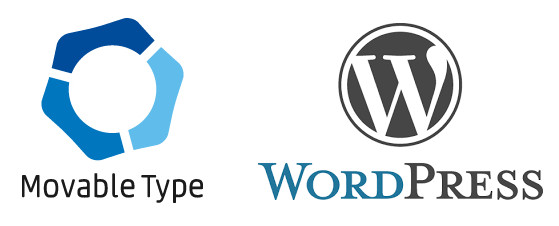
It’s hard to believe now, but there was a time when Movable Type dominated the blogging world. Before WordPress rose to prominence, Movable Type was the go-to platform for anyone who wanted a professional blogging experience. And yet, despite its early success, Movable Type’s legacy is now a cautionary tale—a warning about how quickly the tides can turn. As WordPress faces increasing scrutiny over its governance, licensing, and leadership, it’s worth asking: could WordPress follow the same path as Movable Type?
Let’s explore how Movable Type lost its throne, the safeguards WordPress has in place to avoid a similar fate, and what history teaches us about the dangers of corporate influence in open-source software.
The Rise and Fall of Movable Type
Launched in 2001 by Six Apart, Movable Type quickly became a favorite among bloggers. It offered powerful features, a customizable design, and robust functionality—a major upgrade from the primitive blogging tools available at the time. While not technically open-source, Movable Type allowed users access to its source code for personal use, creating the illusion of a free and open platform.
This illusion shattered in 2004, when Six Apart announced licensing changes for Movable Type 3.0. The new model introduced paid licenses for commercial and high-traffic users, sparking outrage among its community. Users who had built their blogs and businesses on Movable Type felt betrayed. Many migrated to a rising competitor: WordPress.
The backlash was swift and devastating. Within a few years, WordPress eclipsed Movable Type as the dominant blogging platform. Movable Type shifted focus to enterprise clients, but the damage was done. Today, Movable Type survives as a niche product, primarily in Japan, a shadow of its former self.
WordPress: The Untouchable King?
Unlike Movable Type, WordPress has always been open source, licensed under the GNU General Public License (GPL). This means:
- The Code Is Free: Anyone can use, modify, and redistribute WordPress’s code, for any purpose.
- Forking Is Allowed: If the community ever disagrees with the direction WordPress takes, they can fork the project and create their own version. In fact, this has already happened with projects like ClassicPress.
- No Forced Licensing Fees: Because of the GPL, WordPress cannot introduce licensing fees for its core software without violating the license.
These safeguards have made WordPress incredibly resilient. Even if Automattic—the company founded by WordPress co-creator Matt Mullenweg—decided to commercialize future versions, the community could simply fork the existing codebase and continue development independently.
But that doesn’t mean WordPress is immune to drama.
The WordPress Drama: Leadership and Community Tensions
Much of the recent controversy surrounding WordPress stems from its governance structure. While WordPress.org is technically managed by a global community, Automattic wields significant influence, as its founder, Matt Mullenweg, serves as the project’s lead developer. Critics argue that this creates a conflict of interest, as Automattic profits from commercial products like WordPress.com and WooCommerce.
Key Points of Contention:
- Leadership Transparency: Many in the community feel that decision-making is concentrated in the hands of a few individuals, with limited input from contributors.
- Monetization Concerns: While WordPress.org remains free, critics worry about the increasing commercialization of the ecosystem through Automattic’s paid services.
- Plugin and Theme Ecosystem: Some developers feel that Automattic’s products receive preferential treatment, making it harder for independent developers to compete.
These issues have led some to question whether WordPress’s open-source model could ever be compromised.
Could WordPress Become the Next Movable Type?
The short answer is: highly unlikely. Here’s why:
1. The GPL License Protects the Core
Movable Type’s proprietary licensing model allowed Six Apart to enforce paid licenses and restrict forks. WordPress’s GPL license ensures that its core software remains free and open. Even if Automattic wanted to introduce licensing fees, it couldn’t legally prevent the community from continuing the project independently.
2. A Decentralized Community
WordPress is maintained by a massive global community of developers, designers, and users. While Automattic plays a significant role, it’s far from the only contributor. This decentralization makes it much harder for any one entity to radically change the project’s direction.
3. Revenue Through Services, Not Licenses
Automattic’s business model relies on offering premium services (e.g., WordPress.com hosting, WooCommerce extensions), not on charging for the WordPress software itself. This aligns with the open-source philosophy and avoids the pitfalls that doomed Movable Type.
Lessons from Movable Type’s Decline
Movable Type’s downfall offers valuable lessons for the WordPress community:
- Never Take Your Users for Granted: Movable Type’s licensing changes alienated its most loyal users, driving them to competitors. WordPress must prioritize community trust to maintain its dominance.
- Transparency Is Key: A lack of communication and transparency around major decisions eroded confidence in Movable Type. WordPress can avoid this by fostering open, inclusive governance.
- Embrace Open Source Fully: Movable Type’s proprietary model limited community involvement and stifled innovation. WordPress’s open-source model has been a major factor in its success and should remain central to its identity.
The Future of WordPress
While WordPress faces its share of challenges, its open-source foundation and vibrant community make it uniquely positioned to weather the storms. The lessons of Movable Type’s decline serve as a reminder of what can happen when trust is broken and corporate interests take precedence over community needs.
For WordPress to remain the king of open source content management, it must stay true to its roots: open-source freedom, community collaboration, and transparency. As long as those principles remain intact, WordPress is unlikely to suffer the same fate as Movable Type.
What Do You Think?
Is WordPress truly untouchable, or do you see cracks in the foundation? Share your thoughts in the comments below!













